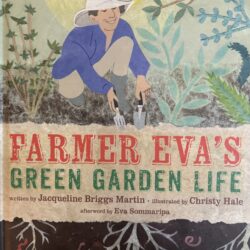Last week at this time I was visiting a school in Cedar Rapids to talk with students about bullying. The Cedar Rapids Opera Company will celebrate its 15th anniversary next year and they have asked Rob Nassif, a composer who divides his time between Cedar Rapids and New York City, to compose an opera for kids about bullying. Rob thought it would be nice if kids did some writing, in advance of his work, that he might incorporate into the opera.
We started out with Goggles by Ezra Jack Keats, a satisfying Keats story in which Archie and Peter outwit a group of “big boys” who want to take the treasured goggles that the two have found in the street. We talked about the big boys and what would make us call them bullies. Then I read excerpts from The Hundred Dresses by Eleanor Estes. Should we call Peggy a bully? How might the victim of the teasing, Wanda Petronski, feel about the “hundred dresses” game? How do bullies want us to feel?
We made a lot of charts: what bullies do, what words bullies use, how to respond to bullies. And the students did some writing. Some shared, some didn’t. The charts we made were good but fairly predictable. Bullies use words like, “nerd,” “ugly,” “hate,” “dumb,” words we’ve heard. Words we know. They push, shove, grab, punch, laugh, gossip, lie. These kids have a grasp on bullies. I knew that.
But they took my breath away in the afternoon. We were almost out of time and I started one more chart: “If a bully were an animal it would have…” Almost before I could finish the phrase, someone shouted out “antennae.” Of course! That’s what bullies are so good at–figuring out just where the weak spot in a person is, figuring out just who to tease, and what to tease about. I don’t know if “antennae” will show up in the opera or not, but it was a wonderful moment.
And it reminded me that that’s how writing goes–we write, and write, and most of it is pretty much mashed potatoes. We’ve heard it. But then in the middle of all that mash comes the surprise–the detail that startles, the action that captures the character. It doesn’t matter how old or young we are: that’s the way writing is. If we stay at it long enough, we get an idea that lifts us off the ground.


